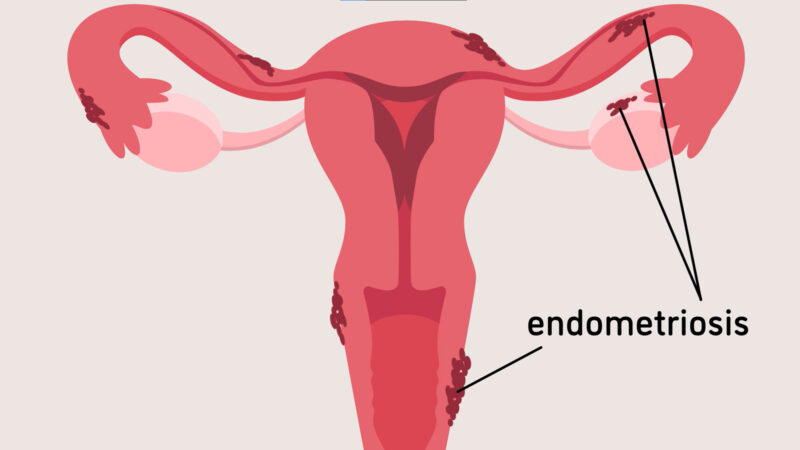Endometriosis is a painful health condition marked by the growth of a tissue similar to the one lining the endometrium (the inside of your uterus) outside your womb. The condition usually involves your pelvic lining, fallopian tubes and ovaries. Occasionally, endometrial-like tissue may be seen beyond the pelvic region. If you are diagnosed with endometriosis, see the best gynaecologist in Delhi for treatment recommendations.
Here is all you need to know about the causes, risk factors and signs of endometriosis.
Causes
- Retrograde menstruation: When this happens, menstrual blood with endometrial cells moves back to the pelvic cavity through the fallopian tubes rather than flowing out of your body. The cells stick to the surfaces of the pelvic organs and pelvic walls where they develop and keep thickening and bleeding during every menstrual cycle.
- Transformation of peritoneal cells: In the induction theory, experts say that immune factors or hormones help peritoneal cells (lining the inner side of the abdomen) transform into endometrial-like cells.
- Embryonic cell transformation: Hormones like oestrogen may help embryonic cells change into endometrial-like implantations during puberty.
- Surgical scar implantation: After a surgical procedure like a C-section or hysterectomy, endometrial cells might adhere to a surgical incision.
- Endometrial cell transport: Your lymphatic system or blood vessels may move endometrial cells to other body parts.
- Immune system disorder: It’s a condition of the immune system that may prevent your body from recognising and destroying endometrial-like tissue that grows outside your womb.
Symptoms
- Dysmenorrhea (painful periods): Cramping and pelvic pain may start before and extend many days into a menstrual cycle. You may even have abdominal and lower back pain.
- Pain with intercourse: Pain after or during intercourse is commonly associated with endometriosis.
- Pain with urination or bowel movements: You have the highest likelihood of experiencing these signs during menses.
- Excessive bleeding: You may undergo bleeding between menstrual cycles or occasionally heavy periods.
- Infertility: At times, endometriosis is first found in women who are receiving treatment for infertility.
- Other signs: You may experience nausea or bloating, constipation, diarrhoea and fatigue, mainly during menstrual periods.
If you have any of these signs, it’s best to visit the best gynaecologist in Delhi right away to get detailed insights about your condition.
Risk Factors
- Never reproducing
- Starting your menstrual cycles at an early age
- Undergoing menopause at an older age
- Heavy menses lasting longer than 7 days
- Short menstrual cycles, often lasting less than 27 days
- Having a higher lifetime exposure to oestrogen produced by your body or having higher oestrogen levels in the body
- Low body mass index
- Conditions of the reproductive tract
- One or more family members and/or relatives with endometriosis
- Any health condition that stops the passage of blood from your body during menses
If you have this health condition, the best gynaecologist in Delhi will recommend a suitable plan for endometriosis treatment. Usually, you will be given pain medications and hormone therapy. If they are not enough, conservative surgery, fertility treatment or hysterectomy along with the removal of your ovarian might be recommended.

